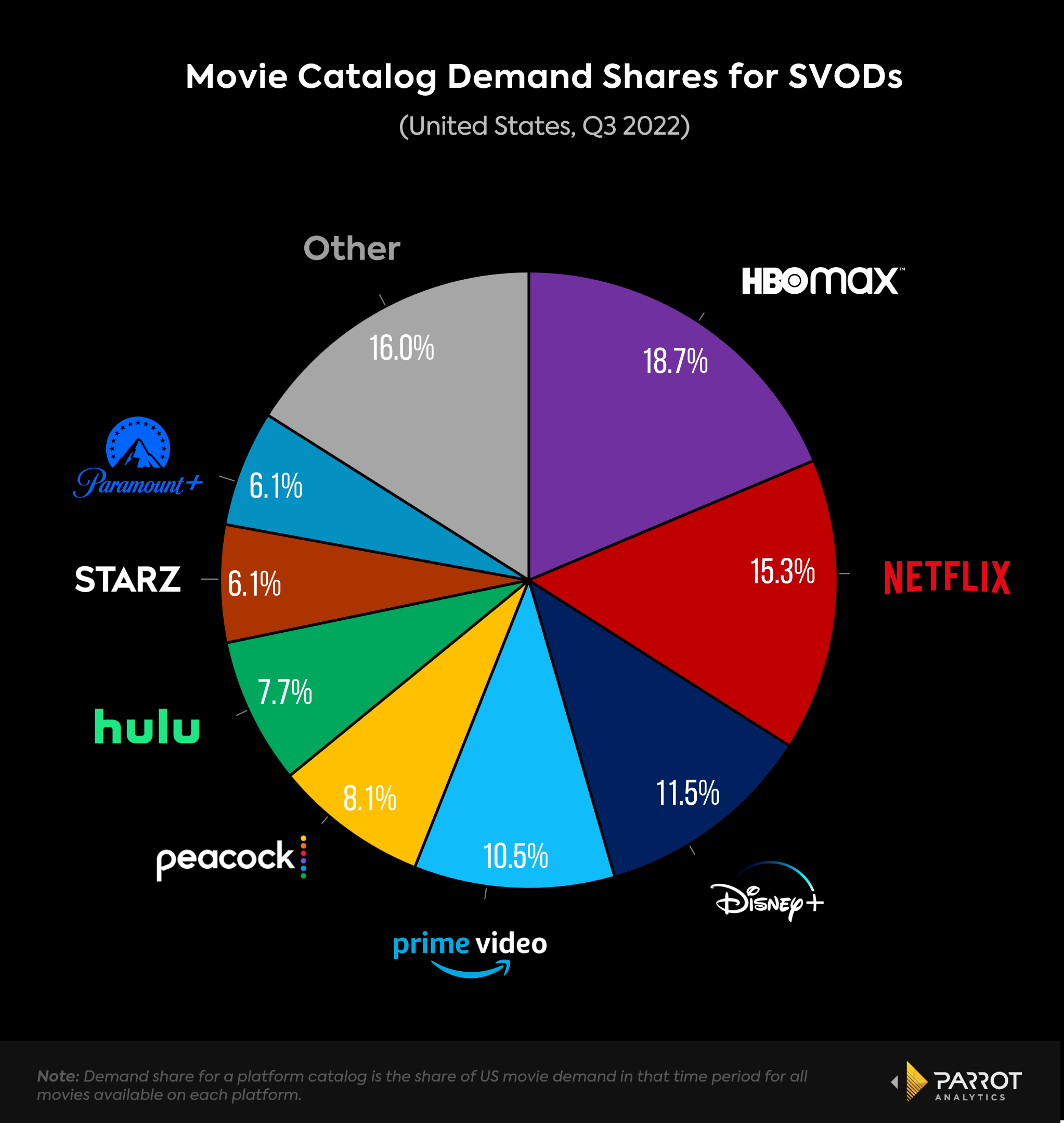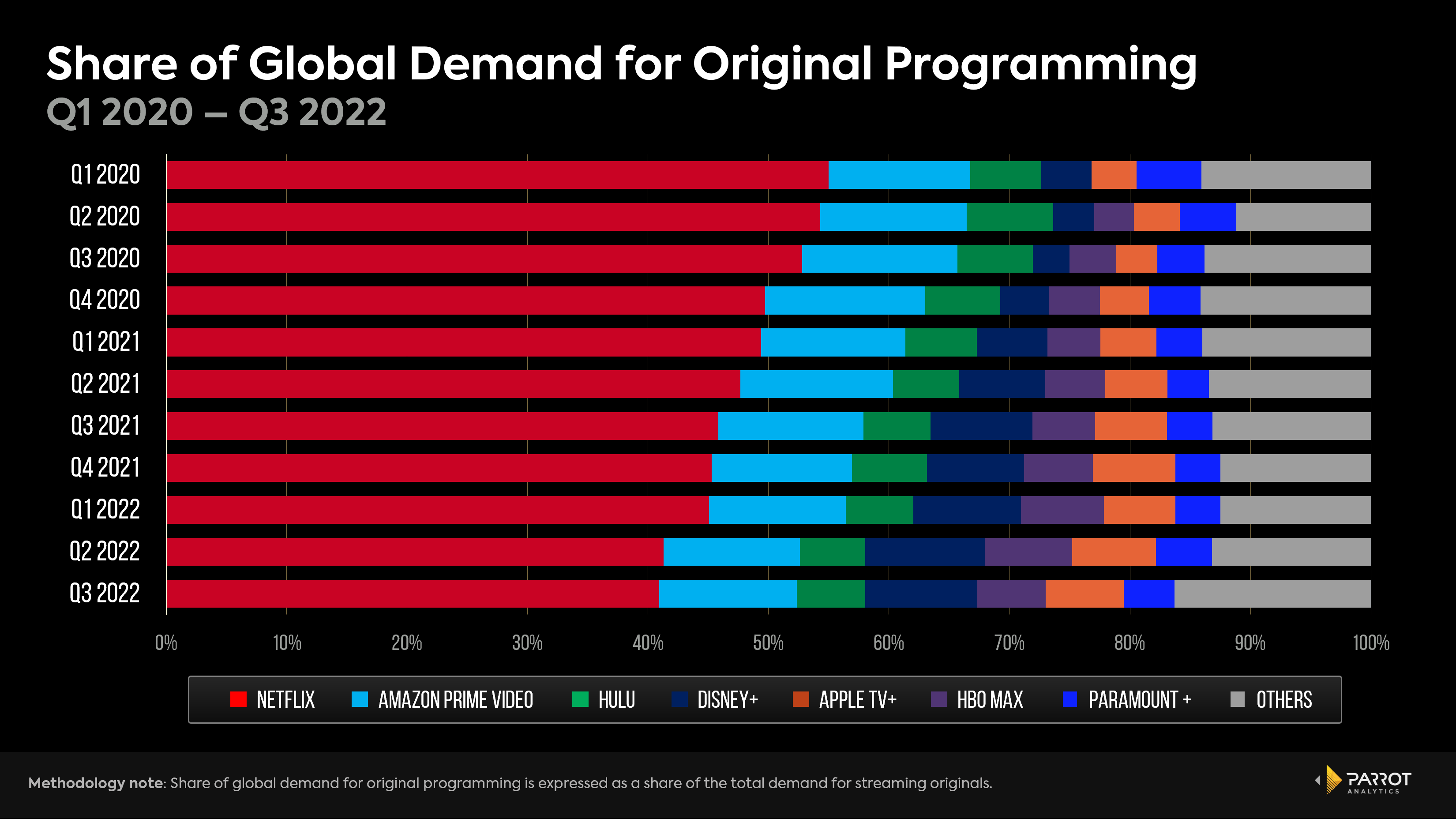It's official: Netflix is back. Well, sort of, anyway.
To say the world's biggest streamer has had a difficult 12 months is something of an understatement. With the war in Ukraine, the cost of living crisis hitting companies and consumers hard, and Netflix's crackdown on account sharing taking hold among its subscriber base, things haven't been rosy for the streaming corporation throughout 2022.
Netflix, though, appears to have finally turned a corner. In its Q3 2022 report, Netflix revealed it added 2.42 million new subscribers to its global fanbase – only a 2.6% year-on-year increase, sure. But, given Netflix lost over one million fans between Q1 and Q2 this year, its latest gains aren't to be sniffed at.
The streamer's recent originals have played a large part in that growth. Stranger Thing season 4 has been a major player in driving its subscriber gains, with the latest installment in the hit Netflix show amassing an unparalleled 1.35 billion hours viewed since season 4 part 1 launched in late May. Other big hitting TV series that have aided Netflix's subscriber push include Monster: The Jeffrey Dahmer Story (824.15 million hours viewed), The Sandman (351 million hours viewed), Extraordinary Attorney Woo (402 million hours streamed), and Cobra Kai season 5 (270 million hours viewed).
On the Netflix movies side, the likes of The Gray Man (270 million hours streamed), Purple Hearts (229 million hours viewed), and The Sea Beast (156 million hours accrued) have also helped Netflix in its hour of need. In short, Netflix's Q2 2022 slate has effectively saved the streaming service from a winter of discontent.

Thanks to its original programming and film slates over the past three months, Netflix has also received a timely boost over its competitors. The streaming platform accounts for 7.6% of total TV time among US viewers – an audience share that's 1.4 times greater than its nearest rival in Disney Plus. Meanwhile, Prime Video lags even further behind, with Netflix's audiences share 2.6 times greater than Amazon's streamer. And that's in spite of the huge success that The Rings of Power, the big budget, high fantasy Prime Video series, has had on Amazon's streaming service.
Netflix also enjoyed a sustained period of growth in the UK compared to its rivals, with its 8.2% audience share blasting Prime Video (2.3 times greater) and Disney Plus (2.7 times bigger) out of the water. Suffice to say, Netflix has plenty to celebrate.

Yet, despite all of its recent success, Netflix still finds itself adrift on troubled waters.
Despite its seemingly unlimited cash reserves and position as the world's biggest streamer, Netflix is lagging behind HBO Max in the on-platform movie share department.
According to leading industry analysts Parrot Analytics, HBO Max holds an 18.7% share of movie audiences (in the US, anyway) for all movies available on each platform. That includes streaming originals, licensed exclusives, and licensed non-exclusives. Compare that to Netflix's 15.3% and, clearly, the streamer's boasting of the success of films like The Gray Man – read our interview with directors The Russo brothers about its development – seems slightly exaggerated.

Netflix is also losing ground in the race for global demand when it comes to original programming. Per Parrot Analytics, Netflix currently hold a 40.9% share of the market – a figure that outstrips its rivals. However, Netflix's audience share sat at 45.8% in Q3 2021, meaning it's lost almost 5% of its global viewership demand over a 12-month period. Additionally, its 40.9% market share represents a slight drop on its 41.2% holding in Q2 2022.
For all the good that Stranger Things 4 and company did, then, Netflix isn't wrestling back control from its six main competitors. For the second quarter in a row, that sextet – Prime Video, Disney Plus, HBO Max, Apple TV Plus, Paramount Plus, and Hulu – shared a global demand share (42.8%) higher than Netflix.
Evidently, the biggest TV shows on these six streamers have made a dent in Netflix's market share again. HBO's House of the Dragon, Marvel's and Star Wars' Disney Plus offerings, and Amazon's Lord of the Rings have taken substantial bites out of Netflix. Again, things aren't as great as Netflix might be making out.

And then there's Netflix's revenue streams. The streaming company may have boosted its subscriber base but, financially, it's yet to see a positive impact from a cash flow perspective. For Q3 2022, Netflix saw its revenue drop to $7.92 billion – down from $7.97 billion in Q2 2022 – which represents a 2.7% decrease in yearly growth. Operating income and net income were also slightly down on its Q2 2022 figures.
Given Netflix's downward trajectory from a monetary standpoint, it's unsurprising that it's trying to turn around its financial fortunes. The streamer canceled a bunch of in-development shows earlier this year and, while its attempts at cracking down on password sharing might be less painful than initially expected, it isn't winning over fans. Additionally, Netflix's introduction of an ad-based subscription tier may entice new users to sign up but, according to a TechRadar poll, its current fanbase won't be taking up the option to pay less for their subscription if it means having to endure ads every 15 minutes.
Speaking after Netflix's latest earnings report was unveiled, Zuora CEO and founder Tien Tzuo said: "It’s a new era of competition in streaming and the race is on to create the right offer, for the right subscriber, at the right time. Netflix’s new ad-tier is a good start, but they still have to work at being more nimble and dynamic, with packaging and bundling, to continue competing with the likes of Disney and HBO."
Yes, on the surface, Netflix is turning its fortunes around. Its recent release schedule has paid dividends and, in the long term, the streamer should see a steadying of the ship from a subscriber perspective.
Beneath the hood, however, things aren't as universally positive as Netflix makes out. It's still got to be aware of the threat posed by its competitors, whose own slate of original programming continues to make a dent in Netflix's dominance of the streaming landscape. As long as Netflix sticks to its task and doesn't get complacent, it should retain the crown it's held for so long. Fail to do so, though, and subscribers might start going elsewhere for their streaming fix permanently.
from TechRadar - All the latest technology news https://ift.tt/24gbRsP

0 coment�rios: